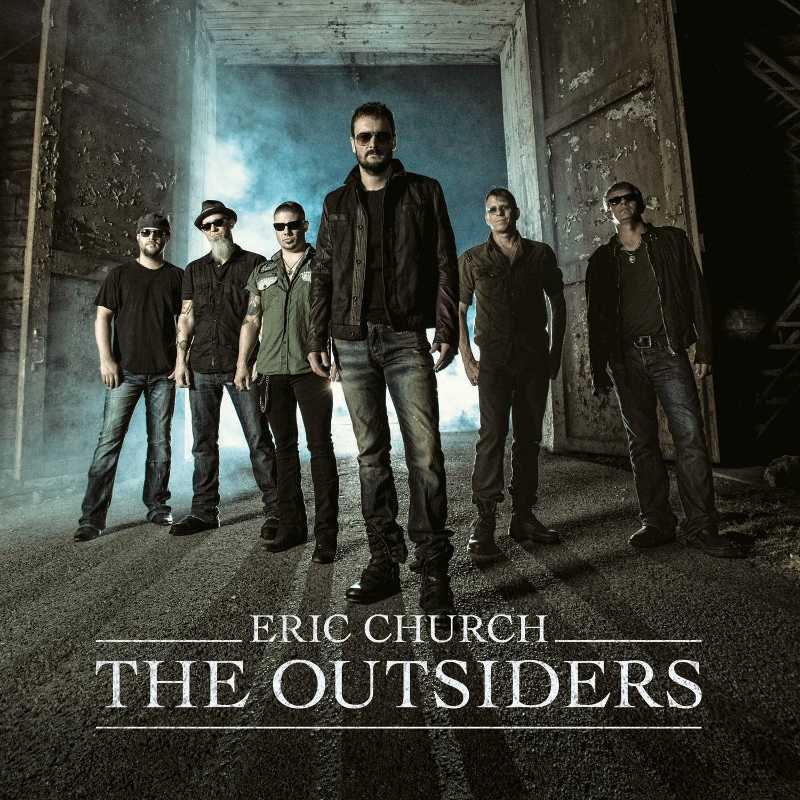By Mikael Wood
LOS ANGELES — Eric Church’s new album is called “The Outsiders,” but he sure didn’t look like one during a recent visit to Hollywood.
Sitting in a chauffeured SUV, the country singer watched as paparazzi snapped photos of his arrival for a taping last week at “Jimmy Kimmel Live.” A bottle of his favorite whiskey awaited him in his dressing room, where a representative of the late-night show soon turned up bearing more gifts: a stack of mint-condition vinyl records by the likes of George Jones and Johnny Cash.
“Very cool,” Church said, inspecting the cover of the Cash album. “He’s so young here.”
At 36, this North Carolina native is inching closer to country music’s power center. His third studio disc, 2011’s “Chief,” sold 1.7 million copies, according to Nielsen SoundScan, and was named album of the year by both the Country Music Assn. and the Academy of Country Music. It even spawned a top 20 pop hit with “Springsteen,” a plaintive midtempo cut about reminiscing to the sound of the Boss’ “I’m on Fire.”
“Historians may not have him on their radar yet,” said ACM head Bob Romeo. “But if we’re looking back 10 or 15 years from now, it’s clear that Eric is making an indelible mark on the genre.”
What kind of mark, though? In spite of his recent success, Church insists he’s a country music fringe-dweller — that “it’s a different kind of cloth that we’re cut from,” as he puts it in the new album’s freak flag of a title track. And even more than “Chief,” which brought an ornery rock ‘n’ roll energy to songwriting steeped in country tradition, “The Outsiders” backs him up.
Widely expected to debut at No. 1 on this week’s album chart, “The Outsiders” opens with that title cut, a heavy-gauge guitar stomp about owning one’s individuality that climaxes with an explosive instrumental section as intense as anything by Metallica or Pantera, both of which the singer said he listened to growing up. (In 2012 Metallica invited Church to play its Orion Music Festival.)
“The last minute and a half of the song, I had never, ever, ever heard anything like that on country radio,” he said as he nursed a Jack and Coke at a Beverly Hills hotel before heading to Kimmel’s show. “I’ve not heard anything like that on rock radio for a while. And that’s what I love about it.”
The song isn’t the only rave-up on the album, which also contains the AC/DC-ish “That’s Damn Rock & Roll” and a multipart screed against the music business called — oh, yes — “Devil, Devil (Prelude: Princess of Darkness).”
Yet Church, who’s married with a 2-year-old son, can be disarmingly delicate too, as in the hushed “A Man Who Was Gonna Die Young,” about finding stability in a committed relationship.
And the album has hard-to-define numbers such as “The Joint,” which Church referred to as a cross between JJ Cale and “Rock On” by David Essex, and the disco-streaked “Roller Coaster Ride.”
“I don’t know what the hell that one is,” he said with a laugh, crediting his longtime producer, Jay Joyce, with helping to create an atmosphere of open experimentation during the album’s recording. A couple of songs, including “Cold One,” even make prominent use of trombone — a rarity on modern pop, rock or country radio.
“I went to this jazz club in San Francisco and just fell in love with that sound,” Church explained. “When I went back to Jay, every song I’d be like, ‘Trombone!’ It became a joke in the studio.”
Mike Dungan, who oversees Church’s label, EMI Nashville, said he knew after “Chief” that the singer was “going to take some chances” on “The Outsiders.” “So I was prepared for anything, and I was still a little bit shocked.”
You get the sense that Church savors that reaction. When a blast of pyrotechnics went off during his performance on “Kimmel,” he clearly got a kick out of rattling audience members near the stage. And in his dressing room he said that as much inspiration as he’s taken from country pioneers like Jones and Cash, he believes their sound belongs to the past; his goal is making music nobody’s heard before.
“Sometimes I get (criticized) for saying that,” he went on. “But these old records — you can still listen to ‘em, you know?”
Church shares that focus on the now with many of the so-called “bro-country” acts that have found huge success lately with party songs juiced with rock guitars and hip-hop rhythms.
But unlike Luke Bryan and Florida Georgia Line, Church is using his expansive music to say something about the complexities (and the contradictions) of modern manhood. Here he is in the slow, soulful “Like a Wrecking Ball,” marveling over the sight of a selfie from his lover: “Sitting on the bathroom sink / Damn, you really turn me on / Painting your toenails pink.”
Two songs later, in the brooding “Dark Side,” he’s threatening anyone who might try to “touch my little boy.” It’s a bruising moment, but a strangely vulnerable one too, the myth of outlaw machismo turned inside out.
It’s also the kind of thing that’s likely to keep Church on the bleeding edge of country music, even as his record sales climb and his concerts — like the headlining set he’s scheduled to play at April’s Stagecoach Festival — get bigger.
“I got a little freaked out with ‘Chief,’” he acknowledged at the hotel. “We’d always been on the margins, and I liked it there. And then I felt the industry move toward me. All of a sudden we were in the middle of the road.
“This time I said, ‘Let’s get back out there.’”
———
©2014 Los Angeles Times
Visit the Los Angeles Times at www.latimes.com
Distributed by MCT Information Services



